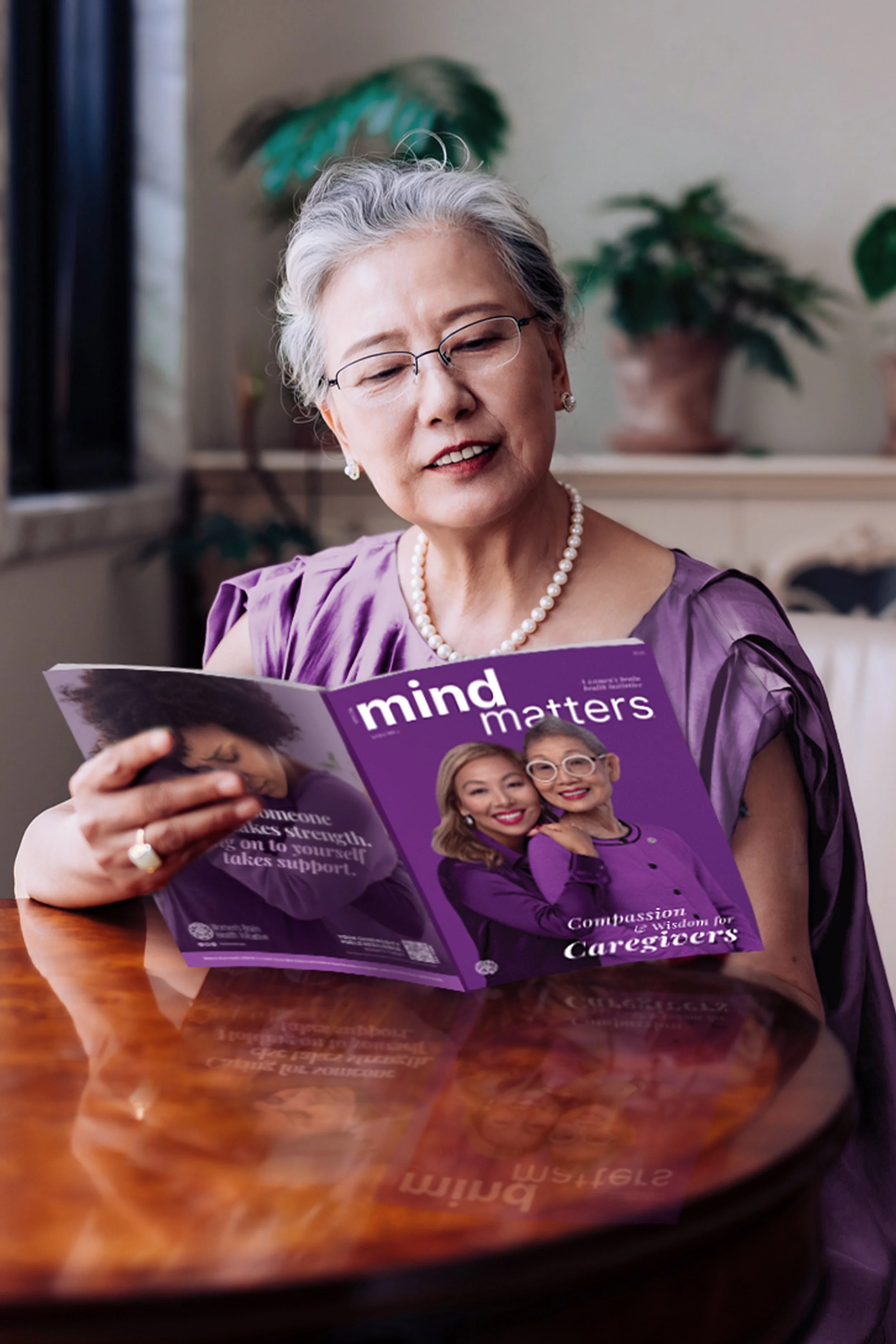~70% OF ALZHEIMER’S SUFFERERS ARE WOMEN
YOU CAN’T IGNORE A NUMBER THIS BIG
LEARN ABOUT OUR MISSION & KNOW YOUR SIX PILLARS OF BRAIN HEALTH
Women’s Brain Health Initiative (WBHI) helps protect the brain health of women, caregivers, and their families. We create evidence-informed preventative health education solutions to safeguard mental wellness and prolong cognitive vitality and fund research to combat brain-aging disorders that disproportionately affect women.
Discover the most important lifestyle choices that protect your brain health as you age and what habits increase your risk for cognitive impairment.
EXPLORE OUR INITIATIVES
RESEARCH
WBHI invests in (i) sex and gender brain-aging research that better meets the unique needs of all women and (ii) research on the efficacy of its programs designed to protect the brain health of women, caregivers, and families.
MIND OVER MATTER
Mind Over Matter® is a multi-media program on the evidence-based Six Pillars of Brain Health that combat brain-aging diseases, highlighting unique risks to women, and providing helpful tips to caregivers.
BRAINABLE
Brainable® is an education program geared to students in grades 5 through 8 on the best ways they can protect their brain health and supplements the middle school health and science curriculum.
BRAINFIT
BrainFit - Habit Tracker is an innovative mobile app empowering users to actively engage in brain-boosting activities and enhance their overall well-being and cognitive fitness, and is entirely free to use.
MEMORY MORSELS
Memory Morsels® brings you delicious, brain healthy recipes, superfoods, brain health tips (our morsels) and great information to help keep your brain functioning the way you want.
CARE COLLECTIVE
Despite its potential rewards, unpaid caregiving takes a toll on individuals' physical and mental well-being. We equip care partners with supportive and compassionate resources to help them navigate these challenges.
BRAINSUITE
BrainSuite® Social Cabinet is a group of young adults actively engaging and empowering their peers to prioritize and protect their brain health through innovative outreach initiatives, social activities, and educational campaigns.
MIND MATTERS
A groundbreaking caregiving-focused publication that blends inspiration, practical advice, heartfelt storytelling, and community connection while addressing the emotional, mental, and practical challenges caregivers face.
MEET OUR EXPERTS
Our work is powered by dozens of experts across the disciplines of science, business, caregiving, and public engagement.
READ OUR FEATURED ARTICLES
OPTIMIZE YOUR BRAIN HEALTH
As an integral component of the Mind Over Matter® campaign, Women's Brain Health Initiative has created a mobile application (or app) called “BrainFit” – a unique habit tracker designed to help users prolong their cognitive vitality.
DO YOU KNOW YOUR SIX PILLARS OF BRAIN HEALTH?
There are several lifestyle choices that we can make (or not make) to help support our brain health as we age and decrease the risk of developing dementia. We refer to these choices as the ‘six pillars of brain health’.

THE HOPE-KNOT
An icon designed exclusively for WBHI by jeweller Mark Lash to remind us how connected we are to our ability for cognitive thought. Many designs to choose from. Every Hope-Knot sold supports sex and gender brain-health research.
READ MORE FROM THE THINK TANK
EVERYDAY INFORMATION
Discover tips and information about the best ways to protect your brain health.
SCIENTIFIC INFORMATION
Read about the research, news, and articles from the medical community.
CAREGIVER INFORMATION
Find helpful advice on taking care of yourself while taking care of others.

SIGN-UP TO GET THE LATEST ON BRAIN HEALTH DIRECTLY TO YOUR INBOX
DISCOVER WAYS TO GET INVOLVED
PARTNER & SPONSOR
Are women a key focus of your business? If not, they should be. Become a champion for women and their brain health.
VOLUNTEER
Volunteering is a great way to give back to the community, meet new people, and feel good about helping others. Interested in helping us out?
DISCUSS MIND OVER MATTER
Bring copies of MIND OVER MATTER magazine to your Book Club or Social Group to discuss the articles and learn the best ways to protect your cognitive vitality.


















